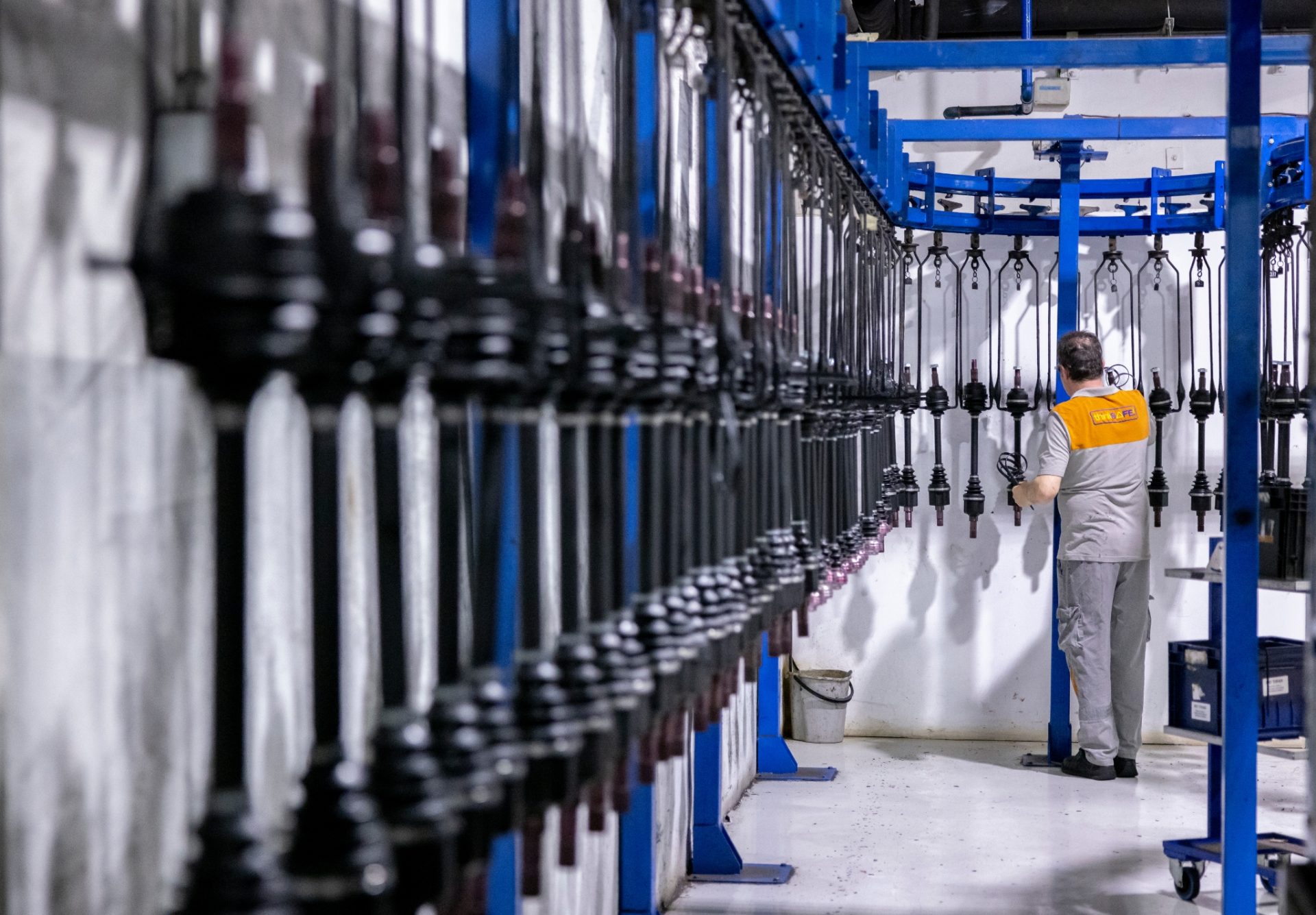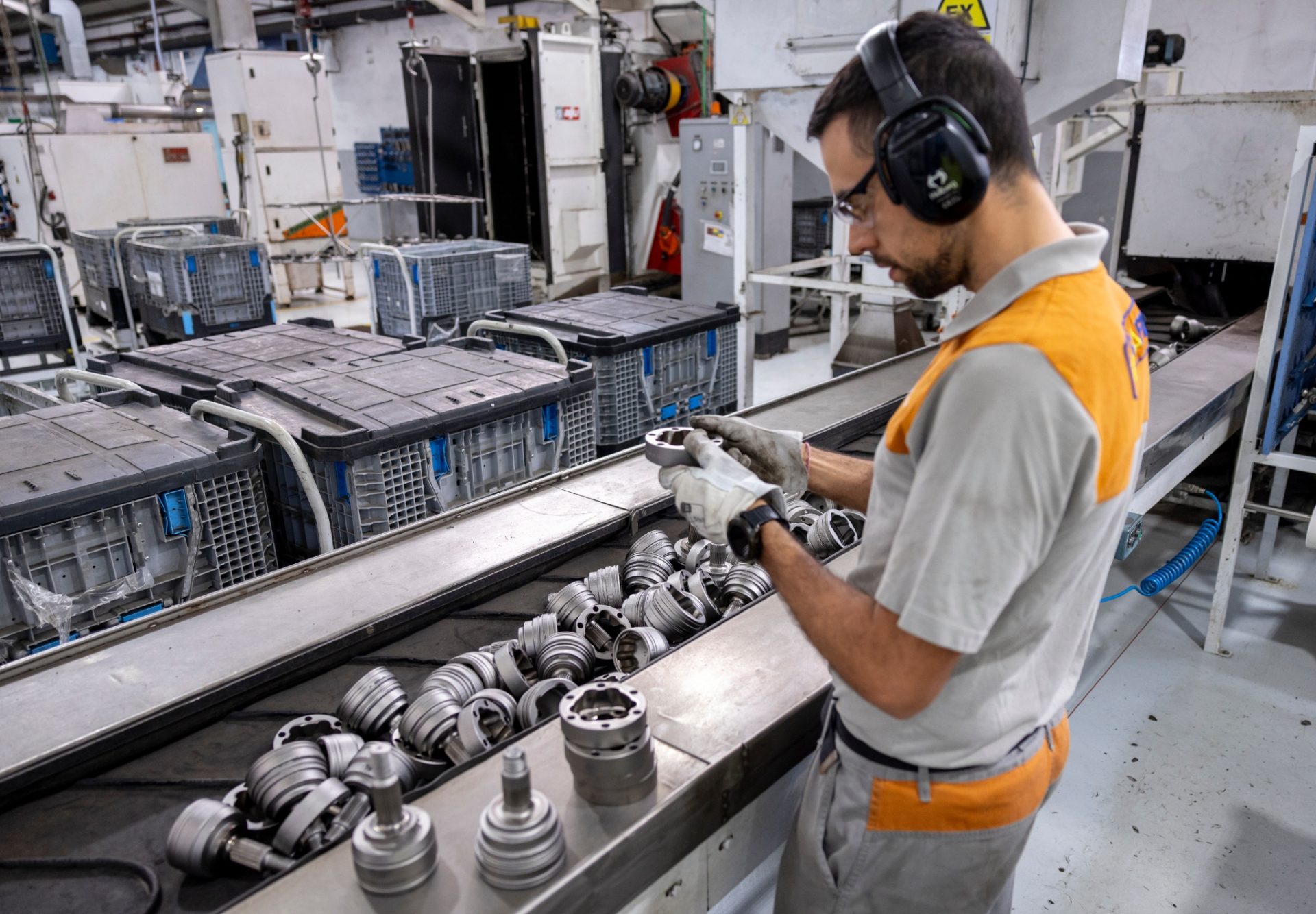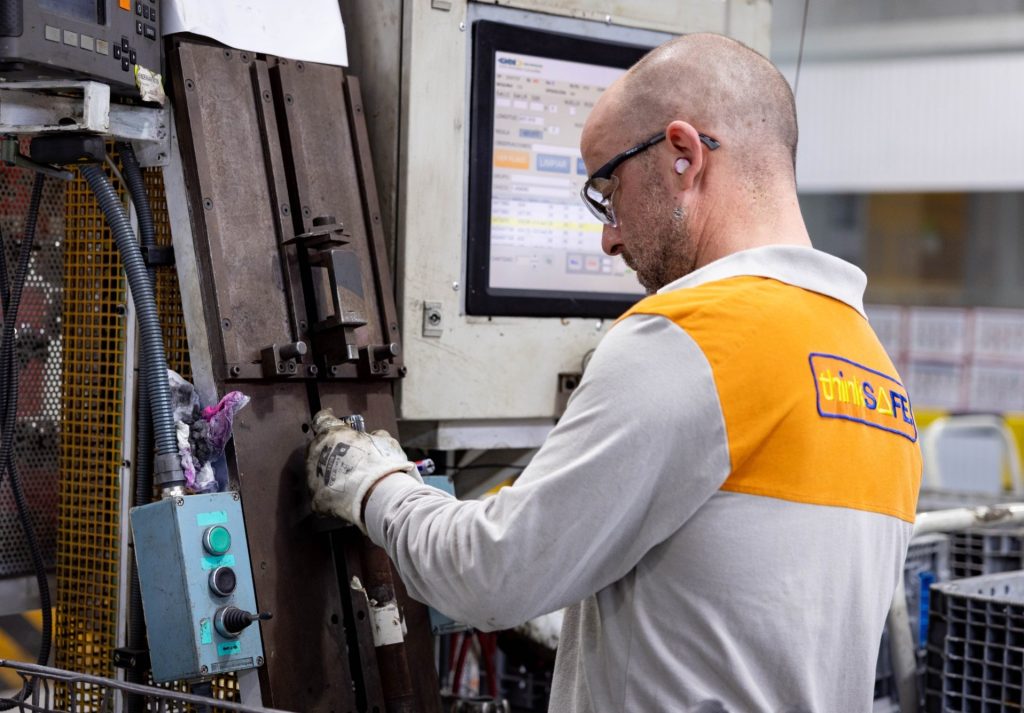GKN Automotive recently launched its Sustainability Progress Report for 2024, which showcases the company’s continued improvement across all areas of its sustainability strategy.
In January last year, GKN Automotive’s near- and long-term carbon reduction targets were approved by the Science Based Targets initiative (SBTi), while it reduced its total direct CO2e emissions (Scope 1 and 2) by 30% versus the previous year.
The organisation also launched a global philanthropic science, technology, engineering and mathematics (STEM) programme across three strategically important locations – Poland, Mexico and India – to support hands-on educational opportunities for over 1,000 children and develop tomorrow’s engineers.
Further highlights across the four pillars of its sustainability strategy – Climate Action, Our Impact, Responsible Sourcing and Our People – include:
- Climate Action: Signed a Virtual Power Purchase Agreement (VPPA) with Recurrent Energy to cover 65% of the company’s European electricity load from 2026, while developing net zero action plans for its top 20 sites, ranked by GHG emissions, to continue to drive progress on its net zero ambitions
- Our Impact: 85% of GKN Automotive’s research and development spend contributed to the decarbonisation of the sector, while 86% of its sites had local charitable relationships and as a business, it made a total of £740,000 in charitable cash donations in 2024, maintaining its contributions versus the previous year
- Responsible Sourcing: Following the introduction of the Supplier Assessment Questionnaire (SAQ) platform to strengthen its sustainable procurement practices in 2023, 80% of GKN Automotive’s direct material spend is now covered by supplier assessment questionnaires, while 78% of steel is now procured from electric arc furnaces
- Our People: Achieved a 0.1% accident frequency rate, while 98% of eligible employees completed annual performance reviews, reinforcing the business’ commitment to ongoing employee development.
The tier one supplier, which is the trusted partner of 90% of the world’s global automotive manufacturers, has also announced the expansion of its responsible sourcing targets to include:
- 95% of supplier spend required to be with partners to be SAQ rating of ‘C’ or above
- 50% of supplier spend to have SBTi accredited emission reduction targets
- 90% of steel to be sourced from electric arc furnaces (EAFs)

Tom Salisbury is GKN Automotive’s Director of Sustainability and takes the lead on the company’s sustainability strategies, covering everything from an environmental perspective, but also looking at other key areas such as social impact.
He commented: “There is continuing demand from our customers to consistently improve the sustainability of our products, processes and operations, and we are actively partnering with them across the business to drive this forward. Our focus has been on Scope 1 and 2 reductions to achieve our aim of decarbonising our operations and value chain and we are proud of the progress made to date.”
We sat down with Tom to find out more.
What are some of the key headlines from the 2024 Sustainability Report?
TS: A key part of the report highlights the progress we have made towards our net zero by 2045 target. That date is a few years away, but we’ve already hit some key milestones over the last year.
In 2024 we announced our Science-Based Target, and then our shorter-term emission reduction targets. We also announced our first virtual power purchase agreement for renewable electricity in Europe.
We’ve really started to turn this global corporate target into a more tangible goal in terms of the key initiatives that need to take place at our top 20 sites to get to net zero, including a tangible carbon emission reduction of 30%.
Another key element is around evolving our philanthropic approach to be more strategically focused on STEM. Therefore, we have launched programmes to support local STEM education in India, Poland and Mexico, which are key locations for us. And we’ll continue to grow those programmes going forward.
What does GKN Automotive’s sustainability journey look like and how has it changed over time?
We set our first targets around the strategy in 2022/2023 and that’s helped to give us guidance around having clear long- and medium-term targets across our different areas. But the expectations of customers, society and regulation continue to evolve. It’s not a case of ‘job done’ after setting the targets.
We’ve looked at our strategy through a number of different perspectives including regulatory, reporting, disclosures, human rights and due diligence. We also have to deal with things like European deforestation regulation, where there’s greater transparency on the products we’re using.
All of our customers have either net zero or carbon neutral goals, and they’re moving past the phase of merely having those in place. In the same way, our suppliers are starting to actually look at what their value chains need to do to contribute to those targets and are shifting from the understanding phase to actually driving change in supply chains and product carbon footprint.
Even at the quote stage, we now have customers asking us about the carbon footprint of products, as well as the financials. That shows that this topic is now higher on the agenda for them, which helps build the business case for a tier one supplier like ourselves.
How does supply chain collaboration tie in to GKN Automotive’s sustainability targets?
Looking at the localisation of our supply chains is an ongoing process for us, and part of that is building up capacity of suppliers and working in collaboration with them. Regardless of the sustainability strategy – whether it be net zero, human rights challenges or supply chains – partnership and collaboration with external parties is critical.
Prior to GKN Automotive, I worked in the telecoms sector, and before that FMCG. A common thread through all of those is the fact that tackling significant environmental and societal challenges without working in partnership is impossible.

Part of the product sustainability strategy at GKN Automotive is focused on eliminating critical materials, reducing embedded carbon and improving product efficiency. Again, that comes through our supply chain. The steel that we use will often have a high recycled content and we also have a facility in Spain which is performing side shaft remanufacturing.
We made more than 300,000 of these last year which means we’re not only recycling the actual product, but we’re also saving the energy that we’d use to make a completely new component.
What does the company’s sourcing targets look like in terms of alignment with SBTi reduction goals?
GKN Automotive announced these at the beginning of last year, so we had an accredited medium-term target of a 45% reduction in our Scope 1 and 2 emissions and a 25% reduction in our Scope 3 by 2030 -from a 2021 baseline.
A lot of work went into modelling and understanding what was feasible and achievable. We also have a target around renewables as that’s key to enable us to get to net zero, as that impacts our direct emissions.
We’re aiming for 75% of our electricity that we purchase to be from renewable sources by 2030. That isn’t that that far away but we’re on track to achieve that. In terms of our long-term net zero goal, we’re looking at our gas usage and how we can electrify processes.
How does GKN’s sustainability strategy tie in with the new STEM programme?
As an engineering company, GKN Automotive needs to have STEM skills in the future, but at the same time, there aren’t enough people coming through the education system who are studying in STEM subjects. That’s quite a challenge, particularly in areas where there’s competition for talent or when we’re looking to grow as a company.
Therefore, we focused on the three strategic areas of Mexico, Poland and India to shape our philanthropic focus on early careers education and to inspire the next generation of talent which we’ll need in the future.
I was in India a few months ago at the inauguration of some STEM labs that we’ve built in government state schools. It was great to see, because we’ve renovated the whole science labs and equipped them. We’ve also worked with a partner to provide teachers as well.
What are the next milestones ahead of the 2045 net zero target?
At GKN Automotive won’t achieve our 2030 target if we don’t achieve our renewables target. So we’ll really be focusing on where we can purchase more renewable electricity. Another key area will be how we work more with our supply chains. Therefore, we’ve also announced targets of having 50% of our supply spend being covered by suppliers with Science-Based Targets.
We’re also moving more towards steel manufactured in electric arc furnaces, which has a much lower carbon footprint. We’re making sure we have our house in order from a renewable electricity perspective, and in the long-term, we’ll be looking at phasing out gas.
We’ll also be looking to engage more with our customers and suppliers so we have a greater understanding of the commitments they want from us from our decarbonisation.
For more articles like this, visit our Sustainability channel


